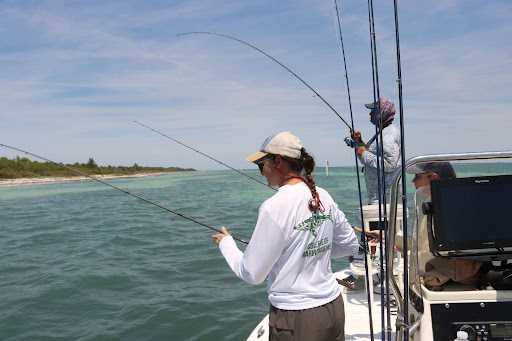
A team of NCCOS-funded researchers at the College of Marine Science of the University of South Florida are collecting fish samples from four popular recreational fish species as part of the Tampa Bay Surveillance Project. The five-year project aims to monitor for the emerging chemical contaminants, including per-and polyfluoroalkyl substances (PFAS), by analyzing both fish and sediment samples collected from sites across the entire Tampa Bay region.
Samples collected in the field are returned to the research team’s laboratory, where advances in chemical detection technology allows the scientists to examine sediment and fish tissue for the presence of PFAS chemical contaminants. The project aims to identify potential chemical hotspots and assess human health risks for anglers who consume their catch. Findings from the project will provide critical information needed by resource managers to better develop environmental remediation and public health strategies. Ultimately, the team hopes the project will serve as the foundation of a long-term surveillance program for Tampa Bay. The project’s work was recently highlighted by both television and print news outlets; highlights can be found here.
This NCCOS-funded research is being led by the University of South Florida’s College of Marine Science, in collaboration with the University of South Carolina and Eckerd College. This work was made possible through NOAA’s authority under the National Coastal Monitoring Act – Title V and the Ocean Dumping Act – Title II of the Marine Protection, Research, and Sanctuaries Act.
